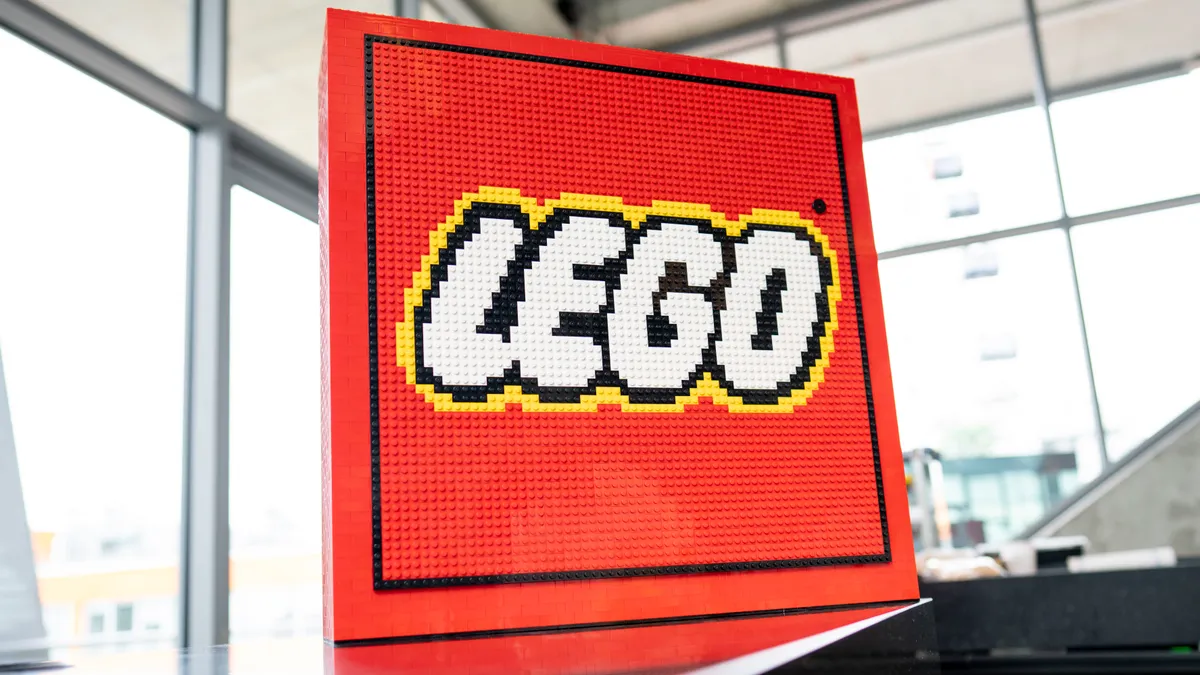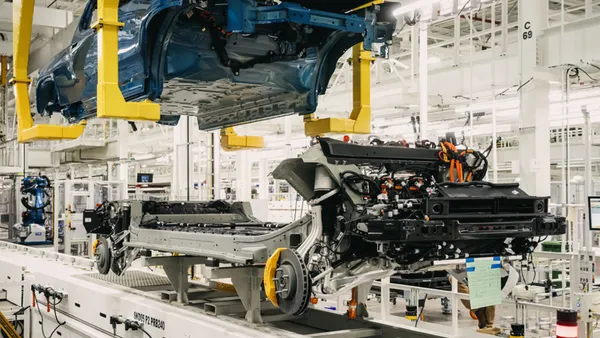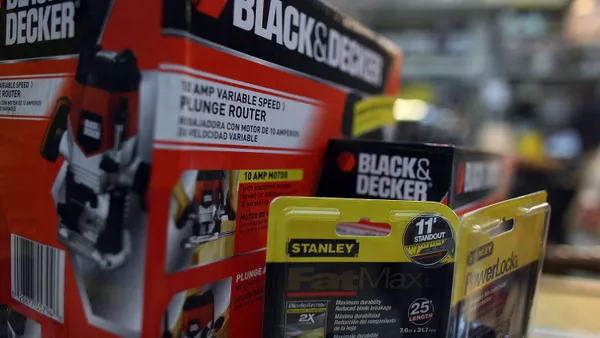Dive Brief:
- The Lego Group launched a Supplier Sustainability Programme last week, aimed at enhancing collaboration with suppliers to curb its carbon footprint and accelerate its pathway to achieve its climate goals.
- The new initiative will require suppliers to report data on the amount of carbon linked to products and services purchased by Lego. Suppliers will also be asked to set near term targets demonstrating emissions curbed related to the manufacturing of these products by 2026, and later in 2028, per the company’s July 3 announcement.
- The company is leaning on suppliers to reduce its carbon emissions as over 99% of the toy maker’s emissions are derived from indirect operations concerning its supply chain, including the transport and delivery of raw materials, equipment, products and services.
Dive Insight:
The Danish toy maker said it will also collaborate with suppliers to identify and develop initiatives and solutions suppliers should take to meet Lego’s emissions reduction goals. This may include transitioning to renewable energy sources at Lego facilities where possible, improving efficiency of such sites to decrease their consumption of resources or even finding low-carbon alternatives to transport production materials, according to the company.
Lego said suppliers will be required to share reports annually beginning this year.
“The Supplier Sustainability Programme is founded on collaboration and we cannot underestimate the power of working together to create real, lasting change and a more sustainable future,” Lego Group’s Chief Operations Officer Carsten Rasmussen said in a press release. “We have ideas and we have a pathway, but we cannot do it alone.”
The supplier program builds on Lego’s climate goals of achieving net-zero emissions by 2050 — which it committed to last year — and reducing its absolute carbon emissions by 37% by 2032, compared to a 2019 baseline — a target Lego previously told ESG Dive it was on track to meet. In addition to announcing its net-zero target last August, the company also said it would triple its sustainability investments to $1.4 billion over the next three years.
Most recently, the Denmark-based retailer behind the popular children’s plastic bricks said it would tie part of its salaried employees’ bonuses to its annual carbon footprint beginning this year. Though this performance metric is primarily linked to Lego’s direct emissions at present, the company said it aims to “expand” it over time to include indirect — or scope 3 — emissions as well.
















